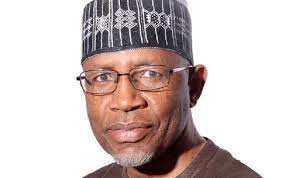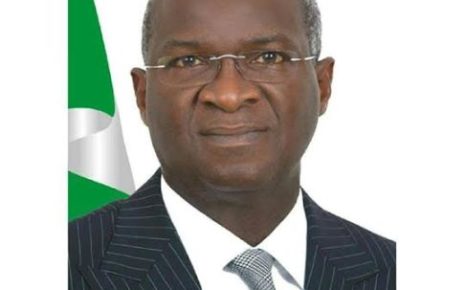The Centre for the Promotion of Private Enterprise (CPPE), a leading private sector advocacy group in Nigeria, has flawed the Central Bank of Nigeria’s Monetary Policy Committee (MPC) on its latest monetary policy decisions during its two-day meeting which ended on Tuesday in Abuja, saying that the jerking of the lending benchmark rate and others will hurt the real sector of the economy now facing macroeconomic challenges.
The Centre in Note signed by the Chief Executive Officer, Dr. Muda Yusuf, maintained that the increase of Monetary Policy Rate (MPR) from 18.75% to 22.5%; and cash Reserve Ratio (CRR) from 32.5% to 45% posed a major risk to the financial intermediation role of banks in the Nigerian economy.
Similarly, it expressed serious concern that the increase would constrain the capacity of banks to support economic growth and investment, especially in the real sector of the economy because the increases are quite significant.
While noting that although the decision is consistent with the typical policy response of the Central Banks globally, the Centre stated that the MPC failed to take into consideration the domestic peculiarities of the economy before taking the decisions.
According to the frontline private sector advocacy group’s CEO, the key drivers of Nigeria inflation are largely supply-side variables, and the CBN ways and means financing.
Yusuf recalled that over the last two years, there had been persistent monetary policy tightening, yet there has not been any significant impact on the inflationary pressures. If anything, the general price level had been continuously on the increase.
The renowned economist further clarified: “We recognize that the primary mandate of the CBN is price stability, but numerous headwinds had posed significant risks to this critical objective. Some of these include the surge in commodity prices and impact on energy cost, disruptive effects of insecurity on agricultural output, and global supply chain disruptions. The surge in ways and means finance also makes the CBN a culprit in the inflation predicament over the past few years. The hike in MPR or CRR would not change these variables.
“Already, bank lending has been constrained by the high CRR which was until the latest review, 32.5% [many operators in the sector claim that effective CRR is as high as 50% for many banks], the discretionary debits by the apex bank. The credit situation in the economy is already very tight, with lending rate ranging between 25 -30%. The Nigerian banks are yet to live up to their financial intermediation role because of these constraining factors.
“The Nigerian economy is not a credit driven economy, unlike what obtains in many advanced economies which have much higher levels of financial inclusion, robust consumer credit framework and strong correlation between interest rate and aggregate demand. The level of financial inclusion in the Nigerian economy is still quite low, access to credit by households and MSMEs is still very challenging, and the informal sector accounts for close to 50% of the economy.
“Private sector bank credit as a percentage of GDP was 14% in 2022 in Nigeria. It was 59% in South Africa, 30.9% in Egypt, 30% in Botswana, 51.6% in the United States and 130% in the United Kingdom. These underscore the variabilities across economies; thus, policy responses have to be different.
The transmission effects of monetary policy on the Nigeria economy are still very weak. In the Nigerian context, price levels are not interest sensitive. Supply side issues are much more profound drivers of inflation”, he added.
The CPPE chief further pointed out that the new dramatic increase in MPR to 22.5% hike meant that the cost of credit to the few private sector that have exposure to bank credits would increase with the attendant negative impact on their operating costs, prices of their products and profit margins, amidst very challenging operating conditions even as the equities market may also be adversely impacted by the hike.
To mitigate the adverse effects of the MPC’s decisions, stressed that it had become imperative for the apex bank to accelerate the process of increased capitalization of the development finance institutions to create a concessionary financing window for the real sector and the small businesses, amongst other measures to grow the economy.
On the surging inflation rate, Yusuf, who outlined several causative factors responsible for the rise in the general price level, advocated that to reverse the spiraling inflation, government needed to address the security concerns causing disruption to agricultural activities; sustain the current reforms in the foreign exchange (FX) market to stabilize the exchange rate, reduce volatility and stimulate forex inflows; and address forex liquidity issues through appropriate policy measures and incentives.
Other measures he considered as imperative for the government to address are to fix the structural problems to boost productivity and competitiveness of domestic firms, address the challenge of high transportation and logistics cost, reduce fiscal deficit monetization to minimize incidence of high-powered money in the economy, and manage climate change consequences to reduce flooding and desertification.
The CPPE boss also argued that to improve the performance of the economy, the government should ensure the restoration of normalcy and good order at the nations ports to reduce transaction costs, reduce import duty on intermediate products and raw materials for industries to reduce production costs, especially in the light of the sharp depreciation in the exchange rate, address concerns around high energy cost, and create an investment friendly tax environment to boost investments and output in the economy.




